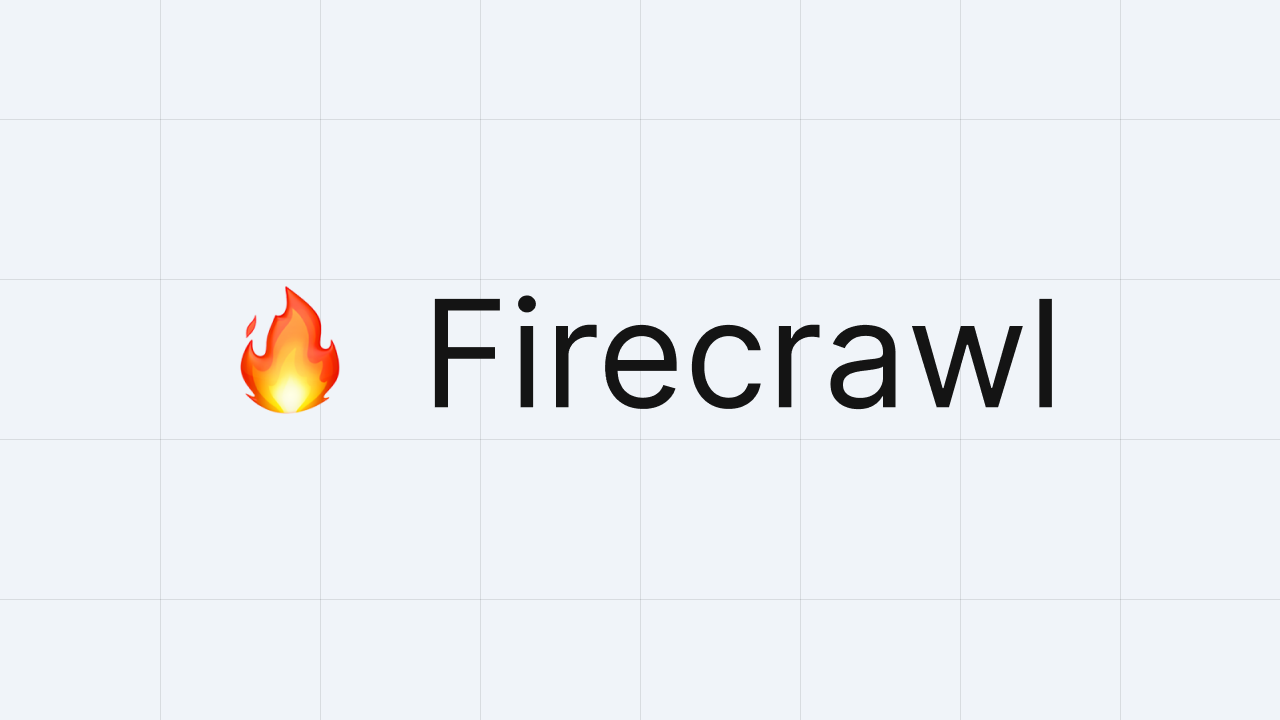
Deploy Firecrawl [Updated Feb ’26]
Firecrawl [Feb ’26] (Data Extraction| Apify & Scrapy alternative) Self Host
Just deployed
Just deployed
playwright
Just deployed
Redis
Just deployed
/data
bonkboykz/nuq-postgres:latest
Just deployed
/var/lib/postgresql/data
extract-worker
Just deployed

Deploy and Host Managed Firecrawl Service with one click on Railway
Firecrawl is a free, open-source web crawling and scraping platform available on GitHub. It offers developers and businesses the ability to collect structured data from websites in a scalable and automated way. Firecrawl is designed to be flexible, with support for APIs, integrations, and workflows using automation tools like n8n. By self hosting Firecrawl or using a managed hosting service, you gain control over your web crawling operations, data pipelines, and scaling without relying on third-party scraping services.
About Hosting Firecrawl on Railway (Self Hosting Firecrawl on Railway)
You can self host Firecrawl to keep all your crawling operations and data pipelines under your control, with no third-party limitations. With Firecrawl, you benefit from powerful web scraping features, REST APIs, and integration possibilities with platforms like n8n firecrawl for workflow automation. Railway makes this process extremely simple by offering a one-click deploy option, so you don’t have to worry about manual setup, scaling, or server maintenance.
Why Deploy Managed Firecrawl Service on Railway
Deploying a managed Firecrawl service on Railway means effortless setup, automated scaling, and simplified maintenance. It allows you to focus on building data workflows instead of handling infrastructure, while still benefiting from all the flexibility Firecrawl offers.
Railway vs DigitalOcean
While DigitalOcean requires manual setup, cron jobs, and monitoring to self host Firecrawl, Railway provides a one-click deployment with built-in scaling, monitoring, and streamlined maintenance.
Railway vs Linode
Linode requires users to patch servers, manage Docker images, and configure persistent storage for Firecrawl. Railway automates these tasks, runs Firecrawl in secure containers, and allows quick restarts or scaling with minimal clicks.
Railway vs Vultr
With Vultr, you must configure everything from OS dependencies to monitoring scripts for Firecrawl. Railway removes this burden by handling scaling, deployment, and performance optimization.
Railway vs AWS Lightsail
AWS Lightsail is more complex, with networking configurations and scaling rules that you must manually manage. Railway abstracts all of this, letting you deploy Firecrawl instantly and scale automatically.
Railway vs Hetzner
Hetzner provides low-cost servers but requires you to handle every detail of hosting Firecrawl. Railway delivers the same cost-effectiveness with the convenience of fully managed deployments.
Common Use Cases
Here are 5 common use cases for Firecrawl:
- Web Data Extraction: Automate the collection of structured data from websites for research, analysis, or machine learning projects.
- Price Monitoring: Track product pricing across e-commerce platforms in real-time.
- SEO Monitoring: Crawl competitor websites for keywords, backlinks, and metadata insights.
- Content Aggregation: Collect and centralize news articles, blog posts, or forum content for analytics or redistribution.
- Workflow Automation with n8n Firecrawl: Connect Firecrawl with n8n to automate scraping tasks, transform the data, and feed it into CRMs, databases, or apps.
Dependencies for Firecrawl hosted on Railway
To host Firecrawl on Railway, you typically need Docker, environment variables (like FIRECRAWL_API_KEY), and persistent storage if you want to store crawl history.

Deployment Dependencies for Managed Firecrawl Service
A managed Firecrawl service on Railway requires containerized deployment, secure environment variables, and optional integration with Railway’s Postgres database for storing crawl logs.
Implementation Details for Firecrawl
To deploy Firecrawl, set environment variables such as FIRECRAWL_API_KEY, define the crawl targets, and configure your storage backend if needed. Railway simplifies this by letting you define all variables in the dashboard.
How does Firecrawl look against other web crawling tools (Alternatives)
Firecrawl vs Firecrawler
Firecrawl is the maintained, production-ready crawler project, while Firecrawler is an older, simpler tool with limited API integration. Firecrawl also has better support for n8n integrations and scaling using Docker.
Firecrawl vs Scrapy
Scrapy is a Python framework for advanced crawlers, requiring significant coding skills and setup. Firecrawl is simpler, Docker-ready, and offers out-of-the-box APIs for quick use. While Scrapy shines for custom crawlers at scale, Firecrawl is better for developers who want plug-and-play crawling.
Firecrawl vs Apify
Apify is a SaaS-based crawling platform with usage-based pricing. Firecrawl is open-source and can be self-hosted for free, giving you complete cost control. Apify offers a marketplace of ready-made crawlers, whereas Firecrawl focuses on flexibility for developers.
Firecrawl vs Octoparse
Octoparse is a GUI-based scraping tool that doesn’t require coding but is closed-source and paid. Firecrawl, on the other hand, provides open-source flexibility, automation-first workflows, and integrations with tools like n8n. Developers who want maximum control often prefer Firecrawl.
Firecrawl vs Nutch
Apache Nutch is a large-scale, enterprise crawler often used for search engine indexing. However, it requires complex setup and significant server resources.
Firecrawl vs BeautifulSoup
BeautifulSoup is a Python library for parsing HTML but doesn’t include crawling capabilities. Firecrawl combines crawling and scraping with automation out of the box, making it more suitable for workflows where both tasks are needed.
Firecrawl vs Selenium
Selenium is a browser automation tool used for testing and scraping JavaScript-heavy sites. Firecrawl can also scrape dynamic sites but is optimized for speed and scaling, whereas Selenium is resource-heavy and slower for large-scale crawling.
How to use Firecrawl?
To use Firecrawl, deploy it on Railway or your VPS, set the API key, and access the dashboard or API endpoints. You can:
- Define crawling rules.
- Trigger crawls via API.
- Integrate with n8n or other workflow tools.
- Export crawled data to CSV, JSON, or databases.
How to self host Firecrawl on other VPS?
Clone the Repository
Download Firecrawl from GitHub: https://github.com/firecrawl/firecrawl
Install Dependencies
Make sure your server has Docker installed.
Configure Environment Variables
Set up FIRECRAWL_API_KEY and other variables in your .env file.
Start the Firecrawl Application
Run docker-compose up -d to start the service.
Access the Firecrawl Dashboard or API
Use the exposed port to access Firecrawl’s interface or API endpoints for crawling.
With Railway, you can self host Firecrawl in a single click. Deploy Now!
Features of Firecrawl
- REST API for triggering crawls.
- Easy integration with workflow tools like n8n firecrawl.
- Dockerized deployment for quick scaling.
- Open-source flexibility with community contributions on GitHub.
- Support for structured data output formats (JSON, CSV, etc.).
Official Pricing of Firecrawl Cloud service
Firecrawl is free to self-host, but managed plans may include pricing for scaling and enterprise features. [Updated Sep’25]
- Free Plan: Ideal for testing small crawls.
- Paid Plans: Pricing scales with the number of crawls and storage required, typically starting at $10–$20/month.
Self hosting Firecrawl vs Firecrawl Paid Plans
Self hosting Firecrawl is free and flexible but requires you to manage hosting. Paid Firecrawl plans offer managed infrastructure, enterprise support, and unlimited scaling.
Monthly cost of Self hosting Firecrawl on Railway
Self hosting Firecrawl on Railway generally costs $5–$10/month for the base app instance, with additional costs for database storage depending on your use case.
System Requirements for Hosting Firecrawl
- Docker runtime
- At least 1GB RAM (2GB recommended)
- Storage for logs and crawled data
FAQs
What is Firecrawl?
Firecrawl is an open-source web crawler that helps automate website data extraction and scraping.
How do I self host Firecrawl?
You can self-host Firecrawl by deploying it on Railway, Docker, or any VPS with Docker support.
What are the key features of Firecrawl?
Firecrawl offers API-based crawling, Docker support, n8n integrations, and multiple data export formats.
How do I deploy Firecrawl on Railway?
Click the Deploy Now button, set your environment variables, and Railway handles the scaling and maintenance.
What are the dependencies for Firecrawl hosting?
Firecrawl requires Docker, environment variables, and optionally a database for storing results.
What are the common use cases for Firecrawl?
Price monitoring, SEO insights, content aggregation, competitor research, and workflow automation.
How does Firecrawl deployment on Railway compare to other VPS providers?
Railway automates hosting, scaling, and monitoring, while other VPS solutions require manual setup.
What is the difference between self hosting Firecrawl and Firecrawl paid plans?
Self-hosting is free but DIY. Paid plans give you managed infrastructure, enterprise features, and official support.
How much does it cost to self host Firecrawl on Railway?
Typically $5–$10/month depending on usage.
Where can I find the official Firecrawl source code?
You can find it on the Firecrawl GitHub repository.
Template Content
playwright
bonkboykz/firecrawl-playwright-ts:latestRedis
redis:8.2.1bonkboykz/nuq-postgres:latest
bonkboykz/nuq-postgres:latestextract-worker
bonkboykz/firecrawl:latest
